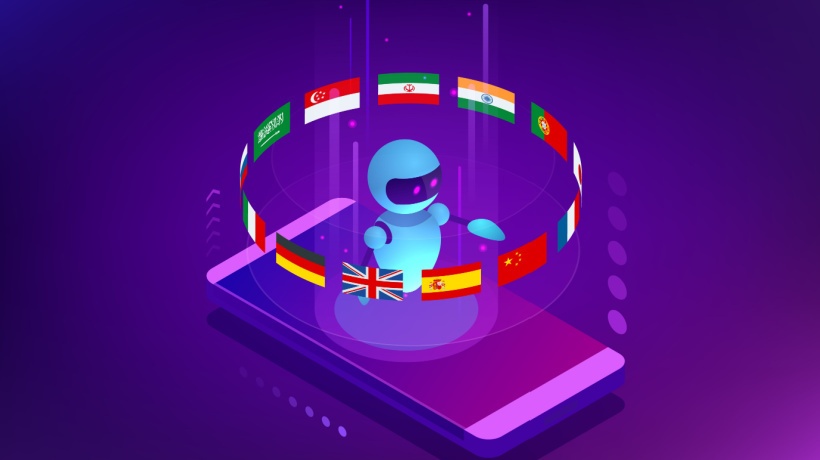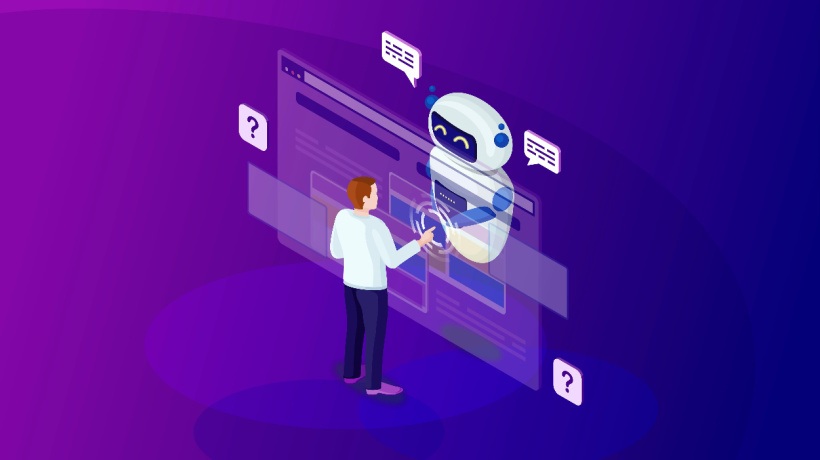Using ChatGPT For Learning English
Since ChatGPT made its first appearance on the internet, people are finding new ways to use its great power in various spheres of life, and the language learning industry almost immediately stole the limelight from others. The demand for quick and effective ways to achieve English proficiency is constant, so no wonder people decided to check on the capability of this AI for learning English. What started as a fun experiment became a real breakthrough in the language learning industry. AI English learning with ChatGPT demonstrated many great benefits, but at the same time, people realized that the technology is far from perfect. As we all remember, with great power comes great responsibility. So, here I want to share how to learn English with ChatGPT effectively, the benefits and bottlenecks of such an approach, and where the place of a certified English teacher in this story is.
Benefits Of Using ChatGPT
The greatest perk of tapping into ChatGPT for students when learning English is personalization. For instance, ChatGPT can create texts and exercises on various topics, from traveling to medicine. People can take any set of words that might not combine at first glance, write a good prompt for ChatGPT to use them all in one text on a specific topic, and receive a decent piece of educational material. From now on, any English lesson can be tailored to the needs and interests of any learner, considering their proficiency level, without too much effort.
For English teachers, ChatGPT is a time saver. Adjusting lessons to every student's request, and preparing individual tasks for the class and materials, along with exercises for homework, takes a lot of time and effort. All of that happens before or after the lesson, meaning that the teacher won't get paid for the extra time spent searching and creating materials. Another plus is that ChatGPT can collect and analyze data on student performance, which helps to track the progress and adapt teaching methods according to the gathered information.
The Reasons ChatGPT Can't Replace Certified English Tutors
The discussion around the topic of when or whether it's better to say ChatGPT can replace live human professionals keeps getting louder. People want to know what to expect, and how to prepare for the time when they will be fired because the AI chatbot can do their job for them. English teachers were among those who had a jump scare for a second, because it seemed that with ChatGPT around, people wouldn't need them. But the more English learners tested the technology, the more they realized that learning English requires experience and human interaction.
Moreover, ChatGPT honestly warns users about its limitations. Among these is the occasional generation of incorrect information, occasional production of harmful instructions or biased content, and limited knowledge of the world and events after 2021. This should prove that ChatGPT can't make you a fluent English speaker. But if you want more arguments, here they follow:
1. No Full Immersion
If the person decides to learn English, it means they have space for improvement. The best way to break the language barrier is to immerse yourself in the language fully. However, if an English learner is only a beginner or has limited language knowledge, they won't be able to write prompts to receive the necessary information from the AI chatbot.
2. It Doesn't Cover All Aspects Of Language Learning
While ChatGPT can teach you some vocabulary, explain grammar, give tips on writing, and create texts for practicing reading, speaking and listening are out of reach. Technology can't listen to you and correct your mistakes while you speak or read. Also, it won't help you to get used to different English accents and understand fluent speech. As a result, your English will not be well-rounded, and you will constantly feel a lack of knowledge.
3. It Makes Mistakes
The biggest flaw of ChatGPT for any English learner is that it does make mistakes. And since you are not a certified teacher, you won't notice it and risk learning the wrong things. ChatGPT has some issues understanding the context, so it's not a reliable tool for language learning. Remember that just one word can change the meaning of the whole sentence.
4. No Real-Life Interaction
You can be the most severe introvert in the universe, but people still need human interaction, especially when learning languages. During the lesson, we all want to see a nice lovely person who will treat us kindly and keep us interested, involved, and focused. Learning English with ChatGPT, you risk getting bored too early and quitting before seeing any improvement. Plus, when there is no commitment to a teacher, the learner will reschedule the lesson. There always are more exciting things to do.
5. Double Work
Last but not least, learning English with ChatGPT will make you a kind of a teacher with zero experience. You will be the person that needs to prepare the lesson and learn at the same time. Eventually, it will result in the learning process taking more time and push back the achievement of your language learning goal.
7 Prompts To Learn English With ChatGPT
The concept that ChatGPT is a magical tool that doesn't need any special knowledge to work with is only partially correct. ChatGPT is an AI-powered chatbot that can provide you with different results depending on the instruction you put in. Furthermore, it is trained to follow a prompt and give a detailed response. So, while it's a no brainer to figure out how the technology generally functions, you still need to learn how to prompt it to receive what you want. It might be quite a task for English learners as everything depends on your English proficiency level.
Training English teachers on using ChatGPT for more personalization during their lessons at the company where I work as Head of Tutors, I've created several universal prompts that will help in learning English using this AI chatbot more effectively. And I'm ready to share those prompts that our teachers found the most beneficial to use during lessons with learners of different proficiency levels.
- A gap-fill exercise prompt
Act as a professional writer writing an exercise book for learning English. Make a gap-fill exercise for B2 learners with the following words . - Prompt for explaining the meaning of words
Act as a teacher of English. You are teaching the vocabulary for X [topic]. To clarify this vocabulary, you need a text which can illustrate its meaning. Write the text with the following words . - Prompt for creating questions for speaking
Act as a teacher of English. You would like to get your students to discuss the topic of X. Write at least ten questions that would generate a discussion. - Prompt for presenting words in context
Act as a teacher of English. You are teaching B1 learners. Write a blog entry in which the author, Amanda, discusses a job she has started recently. Include the following vocabulary . - Prompt for synonyms and antonyms to the target word
Find the synonyms for the word "itinerant" in different contexts. Use Collins Dictionary, Merriam-Webster Dictionary, Cambridge Dictionary, and Macmillan Dictionary. - Prompt for checking whether one word collocates with another
I'd like you to act as an English language expert. Show me the words that commonly collocate with [the word]. - Prompt for writing text for reading
Act as a professional writer writing texts for learning English. Write a text of up to 1000 words for B2 learners about [the topic].
Conclusion
ChatGPT can help you learn English but won't replace certified tutors. Navigating AI-based learning tools effectively is quite a job. That is why it is wiser to assign teaching English to professionals who use ChatGPT in their work instead of struggling with it alone. When the AI chatbot gets into the hands of educators, it can improve the general experience of learning English and result in faster achievements. Mindful implementation of ChatGPT in English lessons is the future of language learning.









